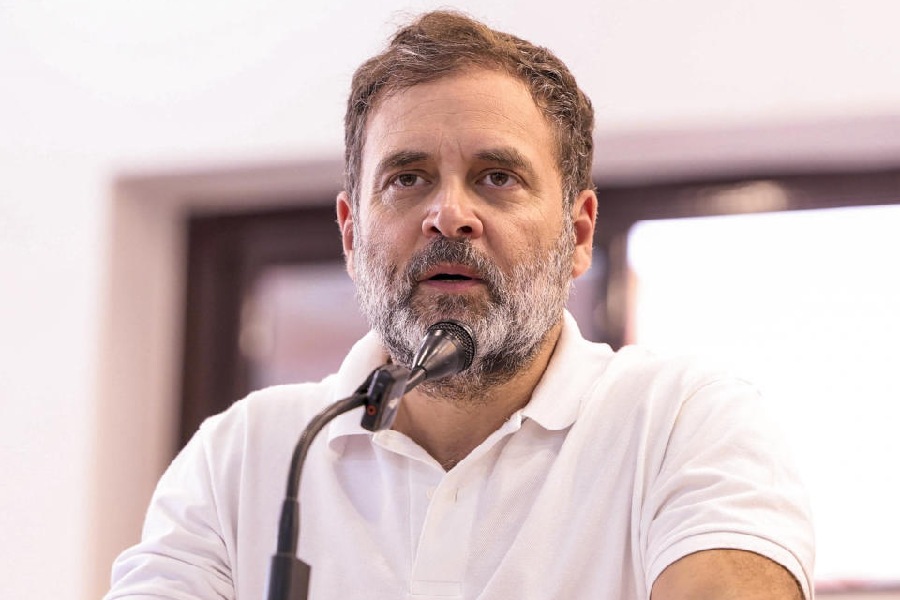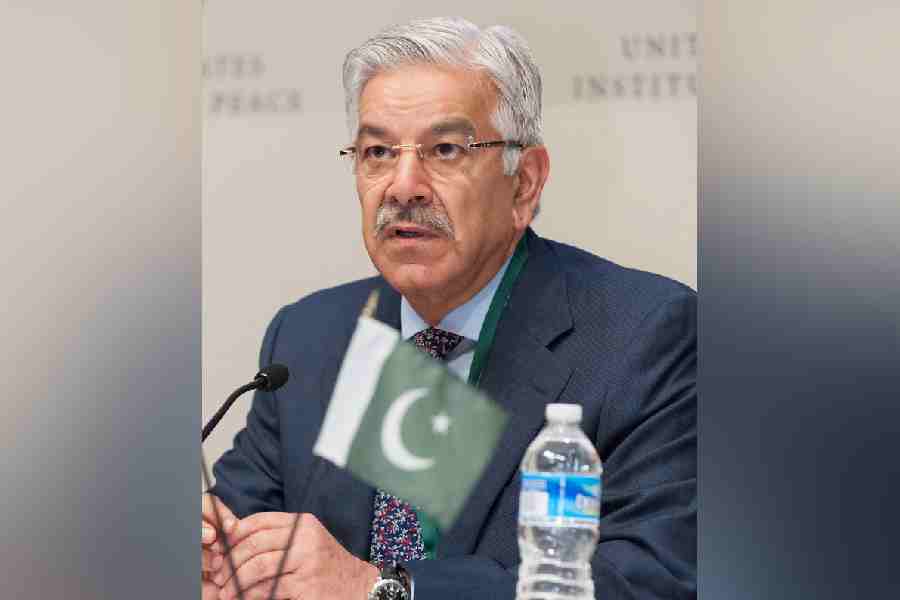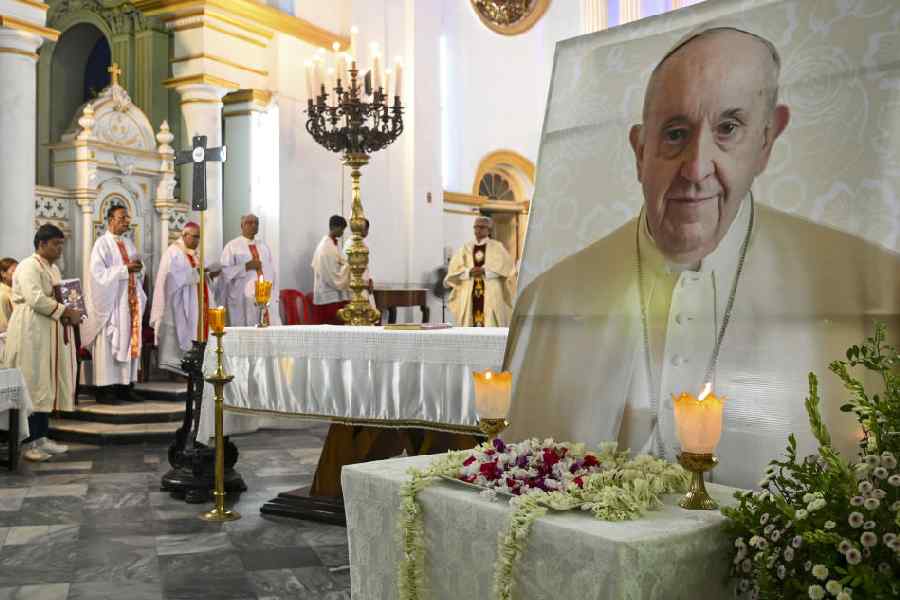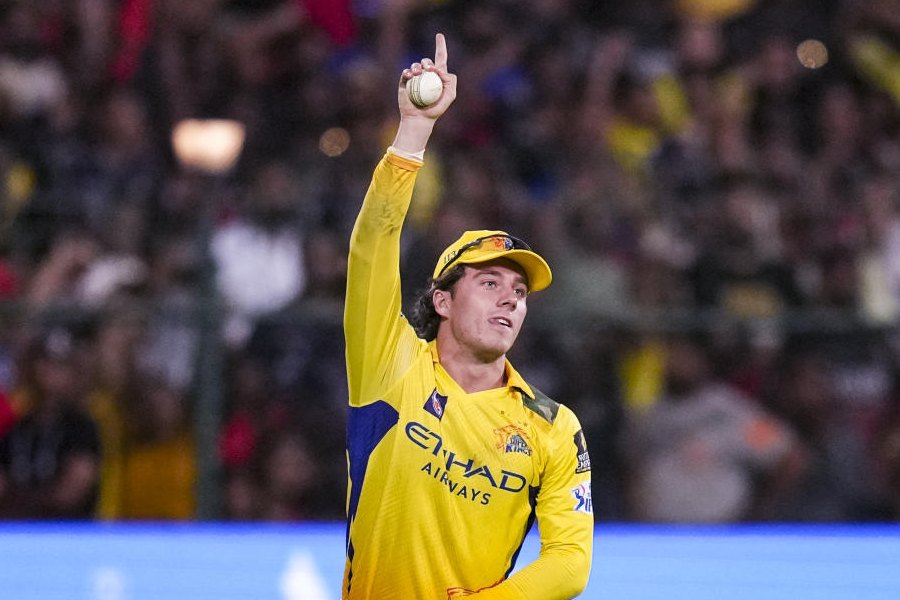
Kashmir's summer of discontent is writ large on Sharad Yadav's face. His brows are furrowed and he looks disconcertingly grim. But then the man, who has just returned to Delhi after a futile search for peace in the Valley, has been widely - and perhaps unfairly - pilloried for making an effort to meet separatist leaders.
Some have accused him - and a clutch of other members of Parliament - of overstepping bounds. For Yadav, along with a group of Opposition leaders, had tried to reach out to Kashmiri secessionist leaders. Yadav glowers when I bring this up.
"Kashmir is a 70-year-old issue. How do we solve it in two days," the 69-year-old leader of the Janata Dal (United) fumes.
Yadav and the 27 other politicians in an all-party delegation of parliamentarians led by home minister Rajnath Singh hadn't really gone to Kashmir last week to settle the Kashmir conflict. Their attempt was to seek ways to resolve the two-month-long crisis that has brought the Valley to a standstill ever since security forces gunned down the 24-year-old commander of the Hizb-ul Mujahideen, Burhan Wani, on July 8. In an unending cycle of violence, 76 people have been killed by the forces so far. Many hundreds lie injured, some have lost their eyesight.
The JDU leader, along with, among others, Communist Party of India (Marxist) general secretary Sitaram Yechury and Communist Party of India national secretary D. Raja, broke away from the group and knocked at the door of the chairman of the All India Hurriyat Conference, Syed Ali Shah Geelani. Geelani didn't let them in, and the media was full of images of the stumped parliamentarians standing outside his closed door. Some even labelled him anti-national for breaking ranks with the parliamentary delegation.
"I don't care who calls me anti-national. Even if Geelani slammed his door on us, we will go again," Yadav asserts.
Four other separatist leaders - Yasin Malik, Mirwaiz Umar Farooq, Shabir Shah and Abdul Gani Bhat - did meet Yadav and his group, but declined to have a dialogue with them on the current crisis. "Their bone of contention was that the central government hadn't invited them to the talks," Yadav says. "They promised to meet us in Delhi."
Yadav holds the state government - an alliance between the Bharatiya Janata Party (BJP) and the Jammu and Kashmir People's Democratic Party (PDP) - responsible for the ongoing crisis.
"When they formed the government in the state, the BJP-PDP alliance declared that they would talk to all stakeholders, including the Hurriyat. Before our visit, too, chief minister Mehbooba Mufti had asked separatists to join the talks. Do you really think she invited them without even consulting the Centre? But the home minister said that it (the Centre) had neither said yes, nor said no to it [the MPs' initiative]."
The confusion, he holds, demonstrates that the BJP is in a bind. "They want to solve the crisis without involving the Hurriyat but the PDP is keen on their participation. There is no co-ordination between the two," he grumbles.
Yadav blames the Kashmiri youth for the impasse. "The biggest problem in Kashmir is its leaderless youth," he asserts.
The former minister has just spoken for a few minutes when he waves his hand to indicate that he has had enough of the interview. " Bas, ho gaya, chalo, chalo (Enough, I am done, you may go now)," he says.
I quickly change the topic, moving to Bihar, thinking that on this issue he may be more forthcoming. This is the state where his party is in power and has introduced Prohibition, which has been roundly opposed by sections of the people. But, no, Yadav is not going to discuss his colleague, JDU president and Bihar chief minister Nitish Kumar. "I will not talk about Bihar," he maintains.
Not even on the alliance in the state between the Congress and the JDU, once known for its anti-Congress stance? " Main kah raha hoon ki Bihar ke baare mein baat nahin karna chahta (I have told you I don't want to talk about Bihar)," he replies sternly.
There is speculation in political circles that all is not well between the Bihar CM and Yadav. Nitish Kumar has been calling the shots in the JDU, which was once Yadav's domain. As the former convenor of the National Democratic Alliance (NDA), he had a cordial relationship with senior BJP leaders such as L.K. Advani, Rajnath Singh and Sushma Swaraj. But he had no say when Nitish Kumar severed ties with the BJP and pulled the JDU out of the NDA in 2013, rejecting Narendra Modi as a prime ministerial candidate for the 2014 general elections.
Does Sharad Yadav have no role to play in the JDU anymore? "It's up to you to analyse," he says, scratching his grey stubble.
In 2013, the party constitution was amended to enable Yadav to hold a third term as the chief of the party. But earlier this year, Kumar was installed as the JDU president, replacing Yadav. Many thought it was to underline Nitish's popularity with the electorate - which would help the party in the 2019 general elections.
"It's natural for people to associate the JDU with Nitish Kumar because he is the chief minister," Yadav says.
There was a time, though, when the Rajya Sabha MP from Bihar was one of the prominent faces of the Janata Dal and its many avatars. He has had a long political innings, too. Active in student politics, Yadav, who topped his batch in the Jabalpur Engineering College in Madhya Pradesh, was the college students' union president in 1971.
When he was 27, socialist leader Jayaprakash Narayan asked him to fight a Lok Sabha bypoll from Jabalpur. He won the seat by over one lakh votes. From 1971 to 1974, Yadav, a strong opponent of the ruling Congress, was in and out of jail under the Maintenance of Internal Security Act (Misa).
He has been a familiar political face since then - recognisable in his trademark white dhoti and kurta. He is in his usual attire when we meet in his office at his residence in central Delhi. On the walls are photographs of Mahatma Gandhi, Ram Manohar Lohia and Jayaprakash Narayan.
As a diehard socialist and a follower of Narayan, Yadav surprised many when he joined hands with the BJP as the NDA formed its first coalition government under the leadership of Atal Bihari Vajpayee.
Yadav was known to have enjoyed friendly relations with Vajpayee. How does he get along with Narendra Modi? "I connected with all the prime ministers in the past but never got a chance to have a one-to-one (relationship) with Modi," Yadav replies. " Inse koi samvad nahi ban paya abhi tak."
How would current developments - Dalit men being flogged by self-styled cow protectors in Gujarat, the Patel agitation seeking reservations in jobs and education in Gujarat, a Muslim man being lynched for storing beef in Dadri - affect the 2019 general elections?
"Their (the BJP's) pre-poll promises included giving jobs to two crore unemployed people, getting black money back, cleaning the Ganges. They have done nothing of this. They are only talking of gau rakshaks (cow protectors), beef ban, ghar wapsi (re-conversion to Hinduism)," he says. "They have to pay a price for that."
He waves his hand again - indicating that my time is up. But I can't leave without a question on his position on women. Recently, he came under fire when he said in Parliament that south Indian women were beautiful, as were their bodies - while his hands moved in a circular motion to explain what he wanted to say. " Woh nritya jaanti hai (They know dance)," he'd said.
"I was not wrong when I said that women from the South have nice figures because they dance regularly," he now explains.
On another occasion several years ago, while opposing in Parliament a bill that sought to reserve seats for women in elected bodies, he had referred to urban women dismissively as " par-kati mahilayein".
"I admit that I shouldn't have used the word ' par-kati'," he states.
By now Yadav has had enough of this particular par-kati mahila. He accuses me of raking up an old issue. "Aapka sanskar kharab hai. Itne din baad aap yeh baat pooch rahin hain. Is baat ka koi waasta nahin hai. (Your values are all wrong. You are bringing this up after all these years when it has no connection to the present)," he says.
Now he is not waving his hand anymore - he is on his feet. The interview has to end, he tells me, for he is waiting for a newspaper editor. " Ab jaaiye (you may go now)," he says.
I now know how the parliamentarians felt when Geelani showed them the door.
tetevitae
1969-71: Gets involved in student politics while studying engineering at Jabalpur in Madhya Pradesh
1974: Spotted by Jayaprakash Narayan as a youngster with promise; contests the Lok Sabha by-election from Jabalpur, wins as an Independent candidate
1977: Enters Parliament as a Janata Party member
Re-elected to Lok Sabha many more times — 1989, 1991, 1996, 1999 and 2009; wins Rajya Sabha terms in 1986, 2004 and 2016
1987: Involved in the founding of the Janata Dal (JD) under V.P. Singh’s leadership; wins from Badaun, UP, joins Cabinet
Becomes JD president replacing Lalu Prasad in 1997. Joins the Vajpayee-led NDA coalition, becomes a Cabinet minister
2003: Merges with the Lokshakti Party and the Samata Party to form Janata Dal (United) or JDU, becomes party president
2013: JDU ends alliance with BJP after Modi is named face of the campaign; is defeated in the LS polls in 2014 by Pappu Yadav
2016: Cedes presidentship of the JDU to Nitish; remains head of the JDU parliamentary party










